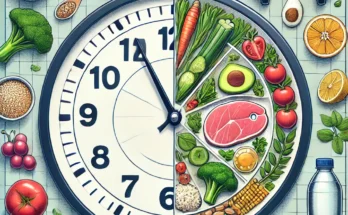Table of Contents
Introduction How Overeating on Your Period Can Disrupt Your Menstrual Cycle
Do you ever feel like your cravings spike significantly before or on your period? For many women, it has become a time of increased eating, sometimes bordering on episodes of binge eating. While this might be considered harmless or perhaps just a way to satiate a hormonal-driven appetite, overeating on your period may, in fact, be harmful to menstrual function and overall cycle health.Periods are complicated, with hormonal fluctuations and nutritional needs that affect our bodies in different ways. However, when overeating becomes the normal response to such fluctuations, it may have the potential to cause menstrual dysfunction-leading to irregular periods, discomfort, and eventually pathologies such as amenorrhea (the absence of menstruation) or oligomenorrhea (infrequent menstruation). This is not just a theoretical correlation, but research also underlines this, with insights from studies like the Swedish Twin Study showing a strong correlation between dietary habits and menstrual health.So, how does it all work, and what can one do to keep things in balance? In this article, we will dive into the science of period cravings, overeating’s effect on menstrual health, and give you some helpful tips on how to manage these urges in a body- and cycle-friendly way.

1. The Nutritional Link with Menstrual Health
Does the question ever arise as to how what you eat can affect your menstrual cycle? As it will turn out, nutrition is powerful in maintaining hormonal balance and thus quite directly influences menstrual function. When we eat in a way that supports our bodies, our cycles tend to be more predictable and manageable. On the contrary, when one overindulges or nutrient-poor foods, this can lead to opposite effects and sometimes even results in menstrual dysfunction or amenorrhea-absence of menstruation.
So, what does the diet have to do with menstrual health, exactly? Let’s break it down:
Nutrients Supporting Hormone Balance
Certain nutrients, such as omega-3 fatty acids, magnesium, and vitamins B6 and E, are highly required in the body for smooth regulation of the hormones. The intake of balanced levels of these nutrients might reduce symptoms such as mood swings, cravings, and bloating during your menstrual cycle. These nutrients included will make a huge difference in how smoothly your menstrual function operates.
How Nutrient Deficiencies Affect Your Cycle
When you are not taking the appropriate amount of nutrition, your body might struggle to maintain your hormones in balance and may cause an irregular cycle. For example, iron deficiency can cause fatigue and also other period-related problems. While vitamin D and calcium deficiency lower level makes the PMS worst. These nutritional deficiencies over time may affect your menstrual cycle .Effects of Overeating on Level of Hormones Overeating-especially binge eating-can cause blood sugar spikes, which, in turn, cause insulin surges. When your insulin is off kilter, this can affect other hormones in your body, such as estrogen and progesterone, responsible for your cycle. This might make a difference in your cycles or periods. Of course, having a little treat every now and then is fine, but it becomes repetitive, which can have consequences for your overall health. Takeaway Eating a balanced diet supportive of hormone balance will positively affect your menstrual health. It’s more than ‘not giving in’ to cravings; it’s about making choices on behalf of your body, rather than against it. So next time you feel those cravings creeping in, consider how nourishing choices could support a smoother, more consistent cycle. By keeping these tips in mind, you are one step closer to an even approach toward menstrual health.
2. Why You May Be Hungrier On Your Period
If you find yourself reaching for snacks or wanting sweets during your period, you are not alone. Many women find their appetite increases around this time of the month, and it’s for a good reason backed by science. Of course, hormonal fluctuations have a lot to do with it, but there’s more to it that can be helpful if you want to make healthier choices while still listening to your body.
Here is why those cravings might be stronger than ever: The Role of Hormones in Hunger and Cravings
During your cycle, hormones such as estrogen and progesterone surge, influencing much more than mood and energy but appetite, too. Just before your period, your levels of progesterone peak, thereby increasing your hunger. At the same time, serotonin levels in your body may bottom out, so you will yearn for carbohydrates and sweet foods to lift your mood. This cocktail of hormones can give way to huge cravings to overeat, especially if you are stressed or energy levels are low.
Common Cravings and Why They Happen
Ever notice that you want certain types of foods around the time of your period? Most women have cravings for salty, sweet, or high-carb foods. This is no accident, since these foods can provide a quick burst of energy and mood stabilization. However, if left unchecked, indulgence in these kinds of foods will lead to binge eating patterns. Keeping these cravings under control will prevent a vicious cycle of overeating that sometimes disrupts menstrual function altogether.
Psychological and Physical Overeating Triggers
With the menstrual cycle come stress, fatigue, and mood swings that make the temptation of comfort foods even harder to overcome. Overeating for some may even become a coping mechanism against the discomfort brought about by period symptoms. Being aware of it will help you in making conscious decisions to manage the underlying emotions or physical triggers and not just simply giving way to cravings.
Ways to Handle Cravings During Periods
These cravings are normal, but being more aware of them may help you not overeat as much. Here are a few to get you started: Plan Balanced Meals: Incorporate protein, healthy fats, and complex carbohydrates in every meal to maintain blood sugar levels and potentially avoid spikes. Stay Hydrated: Often, thirst can mask itself as hunger; this means that you should drink water throughout the day to eliminate superfluous desires.
Indulge, but be aware: Indulging in a craving is fine, but do it with moderation. When possible, choose nutrient-dense options, like dark chocolate over candy.
With a little awareness and intention, you can better manage period cravings without falling into patterns of overeating that might disrupt your cycle.
3. How Overeating Affects Your Menstrual Cycle
You may be thinking, “Can having a little too much during my period really have an effect on my cycle?” The answer is yes. Overeating, mainly binge eating or regularly taking in foods full of sugar and processing, causes hormonal imbalance, which might lead to menstrual dysfunction. Knowing how overeating affects your body can give you more reasons to make healthier choices that will keep your menstrual going on stable grounds.
Overeating may disrupt your cycle in the following ways: Blood sugar spikes and hormonal imbalance
Eating foods high in sugar and too much processed food can raise your blood sugar in no time. Ups and downs of blood sugar create an imbalance in insulin, which in turn creates a ripple effect on other main hormones responsible for the menstrual cycle: estrogen and progesterone. Over time, this might even lead to irregular cycles or conditions such as amenorrhea-no menstruation.
Inflammation from Processed Foods
Apart from that, consumption of food processed or any high-sugar and unhealthy fat food invites inflammatory elements in the body. Chronic inflammation is associated with various health disorders, from disrupted menstrual function to several other problems, since this may distress the fragile balance of hormones running your cycle. Minimizing inflammatory foods can help support your body’s natural rhythm.

Long-Term Effects on Menstrual Health
Overeating at this time may become a habit and, in the long run, give rise to more chronic menstrual problems like menstrual dysfunction. It may bring irregularities in the cycles for some, while for others, it may result in heavier and more painful flows due to hormonal imbalance. Long-term effects of these problems may affect the ability to reproduce and hence one must not overindulge too much in overeating. Signs Your Cycle May Be in Danger
Not sure if your eating is affecting menstrual health? Well, here’s what you should watch out for: Irregular Periods: When your cycle varies significantly every month, it may be because of hormonal imbalances due to overeating. Heavier or More Painful Periods: Frequent overeating, especially of foods that are not healthy, can worsen symptoms at the time of the period. Mood Swings and Energy Drops: Fluctuations in blood sugar lead to mood swings and energy drops due to binge-eating, thus affecting the cycle.
Being aware of such signs might be very helpful in understanding how dieting habits can affect your cycle. Keeping your intake balanced, focusing on whole and nutrient-dense foods, makes quite the difference in capability of experiencing a much more stable and predictable cycle.
4. Long-term Effects of Overeating During Menstrual Cycle
You might look at those cravings and overeating as habits that will disappear once that time of the month has passed. If these habits are left unchecked, long-term repercussions on your menstrual health and overall well-being may ensue. Continually giving in to binge eating to deal with discomfort can lead to cycle irregularities and a host of other menstrual-related issues. Let’s look into how period-related overeating can affect you over time and what you can do to break the cycle.
Here is what one should pay attention to:
Weight Gain and Menstrual Irregularity
Although it is quite normal to binge-eat at times, regular overeating leads to weight gain and, therefore, affects your menstrual mechanism. Research has shown that changes in weight impact hormonal shifts, at times leading to the development of oligomenorrhea or amenorrhea. The function of a menstrual disorder comes along with lots of discomfort and may reflect other serious underlying hormonal abnormalities that require treatment on time.

Increased Risk of PMS and Period Pain
Whether you suffer from PMS or menstrual pain, overeating-especially high sugar or processed foods-can exacerbate the problem. Foods that are known to promote inflammation or cause a spike in blood sugar only increase the likelihood of developing PMS symptoms such as mood swings, bloating, and cramping. By curbing cravings and reaching for the most nutritious options, you’ll be better equipped to keep these symptoms at bay.
Energy Imbalances and Mood Swings
Ever notice how your energy goes flat after a binge-eating session? The more one overeats, the wilder their energy levels tend to swing well outside of a meal. Blood sugar spikes and ebbs from consistently consuming high volumes of processed foods leave you exhausted, touchy, and more sensitive to mood swings. These sudden shifts don’t just take a toll on your day-to-day mood but are really capable of aiding in creating hormonal imbalances that will throw your whole cycle off.
Building Healthier Eating Habits: Some Tips
These long-term effects can be avoided by building healthier eating habits. Here are some tips that help in building healthier, cycle-friendly eating habits:
Practice Mindful Eating
Slow down and pay attention to your hunger and fullness cues. This may help you avoid overeating and get into contact with what your body really needs.
Choose Whole Foods Over Processed Options
Emphasize whole, nutrient-dense foods such as fruits, vegetables, lean proteins, and healthy fats. These have the effect of normalizing blood sugar and diminishing cravings.
Estabeleça Hábitos de Apoio
The formation of sleep, hydration, and exercise habits may also reduce cravings and allow an easier way toward making healthy choices.
By adopting small, easy-to-maintain steps in managing cravings during the period, you will go a long way in supporting a more balanced menstrual cycle. This reduces the risk of those pesky period symptoms from disrupting your life. These choices don’t just benefit your cycle; they’re one way to promote long-term well-being and a healthier relationship with food.
5. Coping Strategies to Deal with Cravings and Keep Healthy Nutrition
Managing cravings doesn’t have to mean going without. It’s just finding ways to enjoy satisfying foods that won’t throw off your cycle or lead to overeating. Both the period cravings and the needs of your body require a balanced approach in management. Here are some real, science-backed tips to beat cravings in such a way that you continue feeling your best: First, choose healthy alternatives for snacking. Crave Chocolate or something sweet? Try substituting sweets with items that will still satisfy. For example: Dark chocolate (70% cocoa or higher) instead of milk chocolate Greek yogurt with berries-as a sweet and satisfying snack high in protein Nuts and seeds-one of the filling and nutrient-dense choices that is very good for energy and satiety These alternatives can be satisfying, but at the same time help maintain stable blood sugar levels, which is important in regulating cravings and preventing binge eating episodes.
Practice Mindful Eating
Mindful eating can make a big difference in managing period-related cravings. When you feel hungry for something, stop to ask yourself whether you are truly hungry or if it is just a reaction to one of your triggers-stress, fatigue, or whatever. Try to: Savor your food more by eating slowly and paying attention to flavors and textures. Stop between bites to check your level of hunger. Never multitask while eating, as this can easily make you forget the actual act of consumption. This way, you’ll be full with less and will be able to avoid overeating. Plan Your Meals Balanced Throughout Your Cycle Consistency is the keyword! Having a meal plan balanced for the entire month, not just during your period, can make a whole lot of difference. Try to include Whole grains, fruits, and vegetables are complex carbohydrates. Lean proteins include chicken, fish, or any plant-based substitute. Avocado, nuts, and olive oil contribute to healthy fats. Eating balanced meals frequently will reduce the intensity of the cravings and allow you to feel more in control.
Hydrate Your Body
Dehydration often disguises itself as hunger, which leads to binge snacking. Get into the habit of sipping water throughout the day. Add a slice of lemon or cucumber if the taste of plain water is not up your alley. This might help keep those cravings at bay and contribute to the general health of your cycle.
Taking Control of Your Cravings
Remember, the management of food cravings is all about balance, not perfection. It’s just a matter of practicing small changes in eating and choosing nutrient-dense foods to create a more balanced and predictable cycle. This allows you to learn how to manage your desires and take back control in a manner that complements your health and wellness goals.
Conclusion
As you’ve seen, the way in which we eat-especially during our periods-can make a huge difference in menstrual function and overall well-being. The fact that you understand cravings and overeating and their impact on cycle health means you’re already starting to take a better balanced approach. So the next time you find yourself wanting to reach for a sweet treat or an additional serving, ask yourself how it might be affecting your body and menstrual cycle.
Remember, it is not about perfection, but about the development of a healthier relationship to food that allows the body to do its best and not get in the way. Small choices-substituting in a nutrient-rich snack, eating mindfully, staying hydrated-can make a big difference over time.
The way we deal with cravings and eating is not a matter of short-term discomfort, but it sets the stage for longer-term health. With that in mind, forge ahead with these strategies to come up with a pattern that works in harmony with your cycle. Taking ownership of your health, one choice at a time, may be just what it takes to shift energy, mood, and, most importantly, menstrual well-being.




